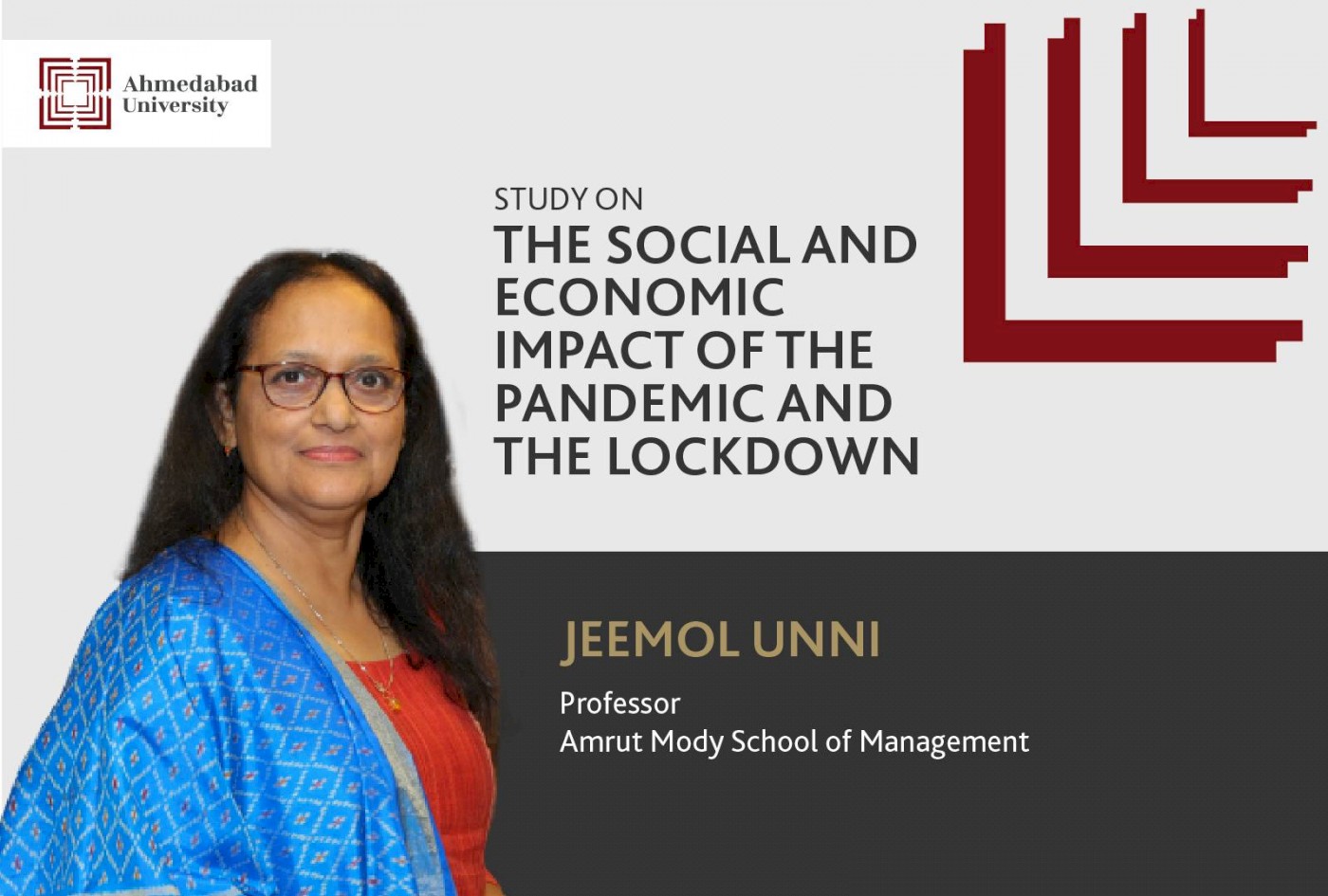13 January 2023
New Studies by Jeemol Unni on the Linkages of Covid-19 With Employment, Learning, and Future Employability

Did the COVID-19 crisis have a harsher impact on women globally? Were they disproportionately represented in sectors that offered low wages, few benefits, and least secure jobs? How did lack of digital access, difficulty in communication with teachers, and lack of peer support impact learning for a large proportion of the student population? In two studies, Jeemol Unni, Professor, Amrut Mody School of Management, brought out the social and economic impact of the pandemic and the lockdown. Professor Unni says, “We looked at employment and income shocks through the gender lens and addressed why women were less likely to resume work after the shock of lockdown. About online education during the pandemic, we inferred that it will add to the existing social barriers of gender, caste, and nepotism and create new entry barriers to better jobs and the level and quality of higher education.”
The studies, Employment and Income Shock During COVID-19 Lockdown in a Metropolitan city in India and Private Investment in Education and Linkage to Future Employment in India: Will the Pandemic Take its Toll?, were published in The Indian Economic Journal and The Indian Journal of Labour Economics respectively.
The first study, conducted in collaboration with Ahmedabad-based NGO Saath during and after the first lockdown between April to June 2020, examined the economic impact of the loss of employment and incomes on workers in relatively low-income households. Professor Unni says, “Women had not resumed work at the same rate as men after the lockdown was eased not because of their increased care responsibilities, but the place of work that was looking at returning to normalcy by first bringing back male workers. In addition, we examined the segments of workers who suffered greater income loss and found that while wage-employed workers resumed work later, they suffered less income loss than the self-employed. This was because they had a salary to return to even though they might have resumed work later. The self-employed had started work earlier but had little or no assured income.”
Professor Unni used secondary data from the National Sample Office in the second study to investigate whether there is a threshold for the level of education for better jobs in India. “We found that higher secondary education is a threshold required for entry into good jobs. We also observed increasing returns to private investments (such as uniforms, books, and tuition fees) in higher levels of education and higher returns to education in the formal sector jobs compared to the informal sector. This threshold, however, had become even more distant for lower-income people due to the gaps in online learning. This impact on education may have greater consequences impacting employment outcomes in the long run.”



